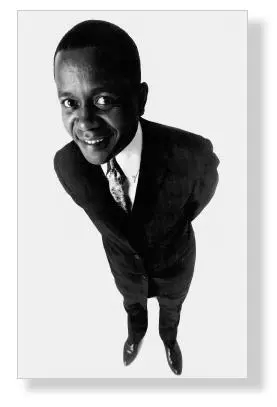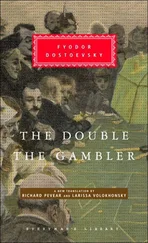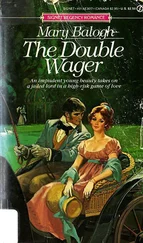“I’m sorry,” she said. “Can’t we just go to the next show? There must be a nine o’clock.”
“ Laurel!”
“If you really want to go, you can go. That’s fine. I can meet you for dinner afterward.”
“I don’t want to go to a movie alone on a Friday night. I want to go out on a date with my girlfriend. This is no small distinction.”
She went to the computer’s history of the sites it had visited that day, and returned to the Google results for Reese. “I can’t stop right now,” she said, and her voice was so halting and soft that she didn’t recognize it as her own. “I know I’m getting close.”
“Let me make absolutely sure I understand this: You want to spend your Friday night at my desk scrolling through sites about a dead photo editor from Life magazine. Is that accurate, Laurel?”
“Not all of Friday night. Just give me half an hour. Okay? Then we can go to dinner or we can go back to your apartment. Whatever you want. I just don’t want to leave now. I…can’t. And…”
“Yes?”
“And those research services for reporters. Can you show me one? Please? Just so we can see what we can learn from Bobbie’s Social Security number?”
He rubbed his eyes and then threw up his hands in a gesture of defeat. Once again he reached over her shoulder, but this time he clicked on the part of his browser marked Favorites and pointed the sites out to her. “Try this one,” he said, clicking an icon, “and type in his Social Security number in this field.” Then he flopped himself down in one of the chairs across from his desk and started to browse through a pile of newspapers on the floor beside it. “I’m giving you half an hour. And then I’m shutting off the lights and we’re leaving.”
REESE, SHE LEARNED, was a journeyman photographer: capable, but not, from the images she found online, especially gifted. He was probably a better editor, which explained his long tenure in that role with Life magazine. The Web sites she visited suggested that toward the end of his life, he was most likely to be displaying his work in such venues as the meeting room of his church-which he did about a year and a half before he died. She made a mental note to spend a day visiting people from the congregation, beginning with the pastor. She thought she might even attend a worship service that coming Sunday in Bartlett and meet the folks who had known Reese-and, perhaps, his eccentric friend, Bobbie Crocker.
One longer obituary in a photography magazine said that Reese had been a sports photographer back when he’d worked in newspapers, but with the exception of the print of the Hula-Hoopers there hadn’t been any sports shots in that box Bobbie Crocker had left behind-and viewing the Hula-Hoopers as a sports image, she decided, was a stretch. Nothing in Reese’s history suggested the interest in music or jazz or entertainment that marked Crocker’s work, and so-unlike David-she remained confident that Bobbie was responsible for the prints that had been found in his apartment.
The last thing she did before turning to Crocker’s Social Security number was to Google the names Crocker and Marcus Gregory Reese together. She came up empty.
Moreover, her research with Crocker’s Social Security number only left her more frustrated, more puzzled. The number did not in actuality belong to a Robert Buchanan, as she had thought for sure it would. Instead, it was linked to Robert Crocker. Her Bobbie Crocker: He was born in 1923 and he had died, according to the site, earlier that month. In Burlington, Vermont.
Likewise, there was no Social Security number in existence for Pamela’s little brother, which would make complete sense if what she had told Laurel was true: Pamela’s brother had been born before Social Security existed, and-if he had died in 1939 as she insisted-he would have died before he would have been assigned one for the purpose of declaring his income.
Of course, for this very reason the site also couldn’t confirm for her that Buchanan had passed away six and a half decades earlier.
Consequently, the jubilation she had experienced in the carrel at the library all but evaporated. David was not the sort who was ever going to whisper, “I told you so,” but Laurel was feeling silly and small. She still believed that Bobbie Crocker was Pamela’s brother, but she understood when she verbalized that notion that she sounded as delusional as a good many of her clients. She knew there was more she could do with Bobbie’s Social Security number, and she would, but they had already missed their movie and so she agreed to David’s entreaties that they shut down his computer and leave.

W ITH A COUPLE OF FINGERS, Whit could hoist his Bianchi road bike up and over the wheelbarrow in the old Victorian’s crowded carriage barn, as well as the other tenants’ detritus: skis and snowboards and skateboards and boots and his own second bicycle, plus the cardboard computer cartons packed with books and clothes and hot plates and mugs. Vaguely aware that Talia was somewhere behind him in the driveway skimming her mail, he lifted his bike in precisely this fashion now as he put it away for the night. It was early Friday evening, and the last of the sun had just disappeared behind the Adirondacks across the lake. It was still light out, but it wouldn’t be soon, and the air was moist with the coming dark. He wasn’t sure whether he was lifting his bike with two fingers now to demonstrate how light the frame was-which, in his mind, was an indication of his prowess as a rider and the sophistication of his bicycle-or because this little maneuver would strike the girl as a casual indication of his brute strength. As inherently contradictory as these motivations were, he guessed the reason was a combination of both. Though he was not interested in Talia, he was in her roommate: This meant that the laws of hormonal transitivity invariably led him to gravitate toward her now. The truth was, he thought about Laurel often when he wasn’t focused on classes and labs, despite his awareness that she was involved with some other guy. She seemed lonely and kind and the possessor of a secret that almost made him ache when he saw her.
Quickly, he locked the bicycle to the jack post. When he emerged from the barn, Talia was seated on the house’s front steps. It was clear that she hadn’t had the slightest interest in how he had put his bike away or noticed the ease with which he had handled the frame.
He decided that he hadn’t ridden far enough or hard enough to smell especially repugnant, and so he joined her on the steps. He was nonplussed to see she was reading a brochure about paintball. He presumed she had received it as part of a bulk mailing.
“Junk mail, I see,” he said.
She looked over at him and seemed momentarily perplexed. Then, understanding what he was referring to, she said-her voice dramatically defensive-“I ordered this. I requested this. Be careful, young man.”
“You ordered a brochure about paintball? Whatever for?”
“Oh, you weenie cyclists in your tight little shorts are all the same.”
“Has my manhood just been insulted?” He smiled as he asked this, but a part of him wondered always just how seriously Talia meant half the things that she said.
“I just call them as I see them.”
“Really. Why do you need a brochure about paintball? Please don’t tell me you’re actually going to take your church kids there someday this fall.”
“Tomorrow.”
“You’re shitting me.”
Читать дальше













